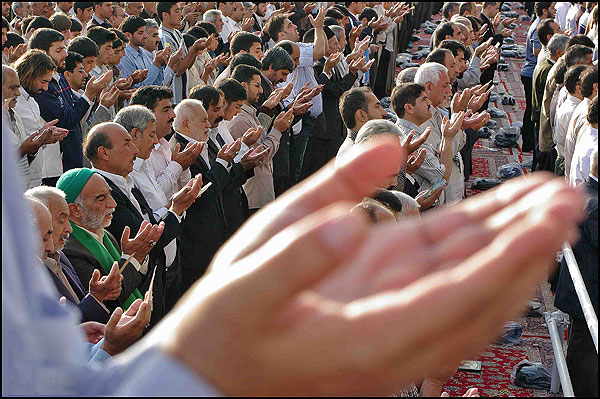What is the philosophy behind Retaliation in Islam?
 One of the criminal laws in Islam is the subject of Ghesaas or retaliation. In the dictionary, the Arabic word i.e. ” قصاص” has been translated as this:
One of the criminal laws in Islam is the subject of Ghesaas or retaliation. In the dictionary, the Arabic word i.e. ” قصاص” has been translated as this:
“To follow up the trace of something”
And this word in Islamic culture means to follow up the trace of a crime and to retaliate the same crime to the committer of that crime.
The holy Quran talks about it in chapter Bagharah verse 179:
وَلَكُمْ فِي الْقِصَاصِ حَيَاةٌ يَاْ أُولِيْ الأَلْبَابِ لَعَلَّكُمْ تَتَّقُونَ
“O’ owners of minds, for you in retaliation, is life, in order that you be cautious”.
It has been mentioned in the history that the Arab before the emergence of Islam, were fighting with each other and sometimes they were killing tens of the members of a tribe, just as the retaliation for a person that was killed, but when Islam emerged, this religion described the justly way of retaliation.
Islam forbade those barbaric acts of retaliation and brought it into the court, a place through which, the guilty person can be distinguished and his/her crime can be proved through lawful ways and the amount of crime can be defined and the amount of retaliation can be known.
The holy Quran says about the retaliation in chapter Maaidah verse 45:
وَكَتَبْنَا عَلَيْهِمْ فِيهَا أَنَّ النَّفْسَ بِالنَّفْسِ وَالْعَيْنَ بِالْعَيْنِ وَالأَنفَ بِالأَنفِ وَالأُذُنَ بِالأُذُنِ وَالسِّنَّ بِالسِّنِّ وَالْجُرُوحَ قِصَاصٌ فَمَن تَصَدَّقَ بِهِ فَهُوَ كَفَّارَةٌ لَّهُ وَمَن لَّمْ يَحْكُم بِمَا أنزَلَ اللّهُ فَأُوْلَئِكَ هُمُ الظَّالِمُونَ
“we have written for them a life for a life, an eye for an eye, a nose for a nose, an ear for an ear, a tooth for a tooth, and for wounds equal retaliation, but whosoever forgoes it as a freewill offering, it will be an expiation for him. Whoever does not judge according to what Allah has sent down, such are wrong doers”.
You know nowadays some people around the world, blame Islam because of having retaliation approved, and they say it is against humanistic bases, but we say as the answer to this blaming and as the philosophy of retaliation:
Imagine a murderer that has murdered several persons, we can leave him and just advise him by some classes or books etc. and the other reaction is to kill and retaliate such a dangerous person, because if we leave him alone and let him be free, after a while he gets more saucy and continues his crimes, there is an interesting poem in Persian in this regard that says:
Being merciful to the wolf which has sharp teeth, it is the cruelty toward the sheep.
And by retaliation of that murderer, it can be a lesson for the others to abstain from committing such a crime.
And we realize from the first mentioned verse in this essay of the Quran (that expresses the retaliation as a means in which there is life), that our aim from retaliation is not just killing a single individual, but rather it is a means for keeping the life of the society members safe. So this rule is not against the humanistic emotions and in fact is it a kind of mercy to the members of the society.
And we say that Islam is a religion in between, and is out of any extreme, so we do not see this religion as the distorted Judaism that says: that just retaliation must be done to the committer of a crime and not like the distorted Christianity that says: be merciful to all people. We see that in Islam we have been advised to forgive in some cases, for example in the deliberate murdering(not the murdering which is committed out of mistake) there are three choices for the family of the murdered, first is to ask from the court to retaliate the murderer, second is to receive blood money instead of retaliation and the third is to forgive without receiving any thing as blood money, but to sum up, we say: in the cases that if we leave the murderer free, it is considered as a way to make him saucy and he may continue to kill others, in this case, retaliation is better, but when the murderer is really regretful and he never wants to continue such a crime, it is better to forgive him and it is something that we can take from the above mentioned discussion.
——————————
Source:
Islamquest.net










